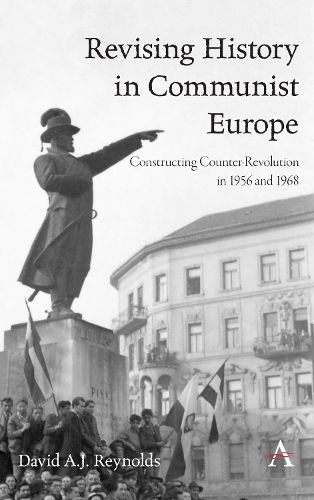Readings Newsletter
Become a Readings Member to make your shopping experience even easier.
Sign in or sign up for free!
You’re not far away from qualifying for FREE standard shipping within Australia
You’ve qualified for FREE standard shipping within Australia
The cart is loading…






A study of the Hungarian uprising of 1956 and the 1968 Prague Spring
Both Hungary’s 1956 uprising and the Prague Spring took place when regimes tentatively revised recent history. This process of remembering and forgetting shook the legitimacy, and shaped the actions, of communist party-states because their control of the past was central to their grasp of the present.
Those who define the past control the present. Revising History in Communist Europe shows how the manipulation of history both empowered and weakened the communist regimes of post-World War Two Europe. It demonstrates how seismic events of the recent past reverberate in the understandings of the present, determining perceptions and decisions. With fresh analysis on the imposed communist definition of Hungary’s 1956 uprising and its effects on the definition of the Prague Spring, this study will give readers a timely and penetrating insight into both landmark events.
$9.00 standard shipping within Australia
FREE standard shipping within Australia for orders over $100.00
Express & International shipping calculated at checkout
A study of the Hungarian uprising of 1956 and the 1968 Prague Spring
Both Hungary’s 1956 uprising and the Prague Spring took place when regimes tentatively revised recent history. This process of remembering and forgetting shook the legitimacy, and shaped the actions, of communist party-states because their control of the past was central to their grasp of the present.
Those who define the past control the present. Revising History in Communist Europe shows how the manipulation of history both empowered and weakened the communist regimes of post-World War Two Europe. It demonstrates how seismic events of the recent past reverberate in the understandings of the present, determining perceptions and decisions. With fresh analysis on the imposed communist definition of Hungary’s 1956 uprising and its effects on the definition of the Prague Spring, this study will give readers a timely and penetrating insight into both landmark events.